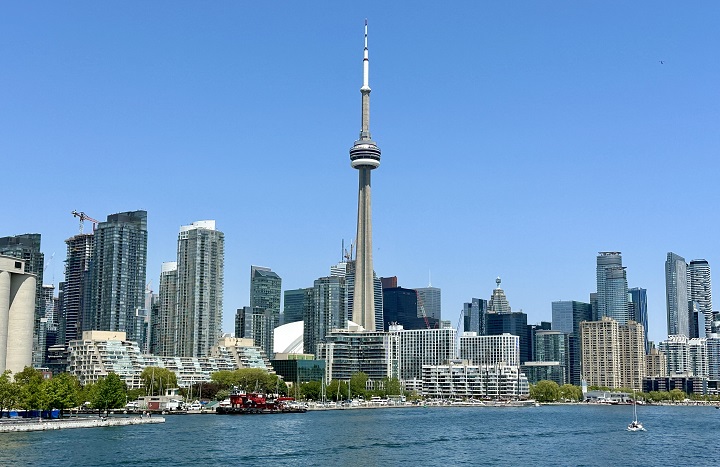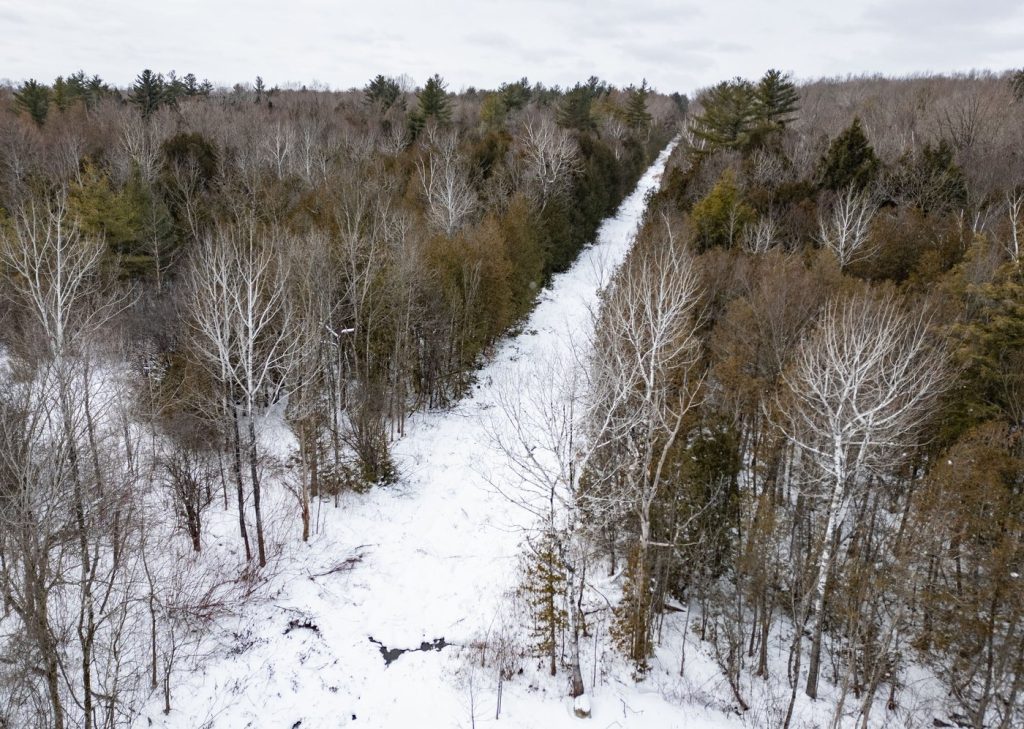Threatened Quebec caribou herd expecting up to 12 calves this year

Posted April 29, 2023 12:32 pm.
MONTREAL — A caribou herd in Charlevoix, Que., could be heading toward a baby boom this year, providing a rare bit of good news for the province’s decimated population.
Caroline Hins, a biologist with the province’s Wildlife Department, confirmed all 12 of the herd’s breeding-age females are believed to be pregnant, after tests that showed high progesterone levels.
“It’s very good news,” she said in an interview Friday.
She said that if all the pregnancies are carried to term and the calves survive — and there’s no guarantee of that — the herd northeast of Quebec City will have doubled in size in a year and a half.
The Quebec government captured the herd, then numbered at 16, and placed it in an enclosure in February 2022 as part of a controversial plan to prevent isolated herds from dying out. Five healthy calves were born last year, out of eight presumed pregnancies.
The government has argued that enclosing caribou represents their best chance of survival, offering protection from predation and ensuring they have access to food, water and veterinary care. But environmentalists have criticized the government for putting the animals behind fences rather than protecting and restoring their old-growth forest habitat and presenting a long-promised master plan to rebuild the species.
The government has described the fencing approach as temporary, and Hins says the birth of new caribou raises hopes that the herd will one day be able to be released back into the wild. However, she could not give a timeline for when that could happen.
She said a lot of work still needs to be done, with habitat protection and restoration at the top of the list. Details of that habitat restoration will come in the province’s caribou action plan, which is now expected to be released in June after years of delay. Among other things, the plan needs to prevent logging in some areas, control predators and close down logging roads to restore habitat, Hins said.
In the meantime, there’s a risk that the animals will get used to being fed, and that the calves won’t develop proper survival instincts. She said the workers who deal with the caribou try to minimize contact with them during feeding, so they don’t become too used to humans.
She said keepers will gradually take away the grain the animals are given before an eventual release, so they’re better prepared to eat what they find in the wild. She said experts are also looking at ways to “rehabituate” the animals to predation but would not elaborate on how that could be accomplished.
In the meantime, she said the Charlevoix herd is relatively healthy, with a good mix of animals of different ages. An eventual liberation will also depend on the herd’s ability to continue growing, she said.
She said caribou normally give birth in May or June, so there are still a few weeks to go until the new calves arrive.
Hins said it’s not yet confirmed whether any caribou are pregnant in the other enclosed herd in Val d’Or in northwestern Quebec, which had just six or seven animals at last count.
Six females have also been captured and put in “maternity pens” in Gaspésie, in eastern Quebec. They will be released at the end of the summer once the calves are a few months old and better able to survive, the government said in a news release.
The total population of caribou in Quebec was estimated at between 5,000 and 10,000 in the 2005 to 2016 period. However, recent aerial surveys have suggested most herds have continued to decline due to habitat destruction, industrial activity and an increase in predators that use logging roads to reach their prey.
This report by The Canadian Press was first published April 29, 2023.
Morgan Lowrie, The Canadian Press








